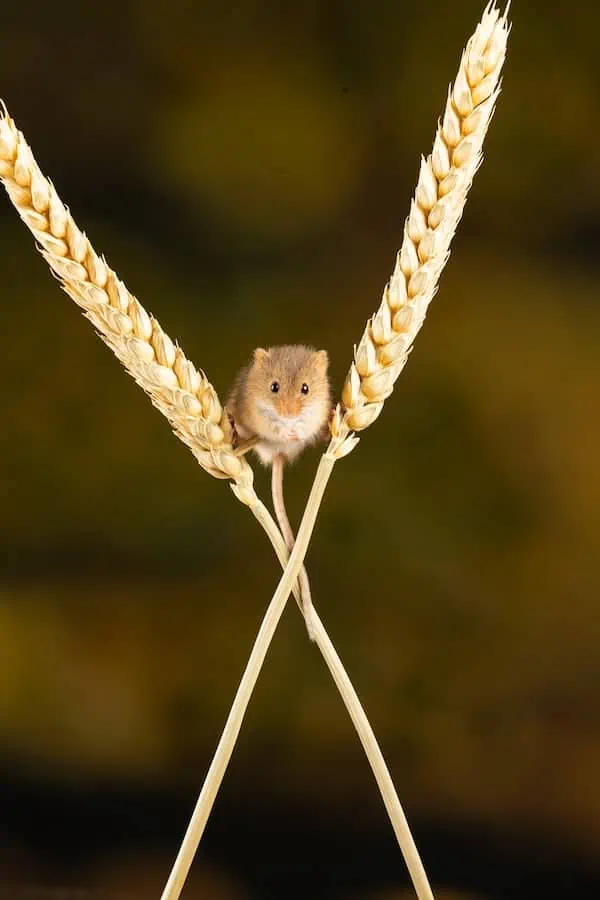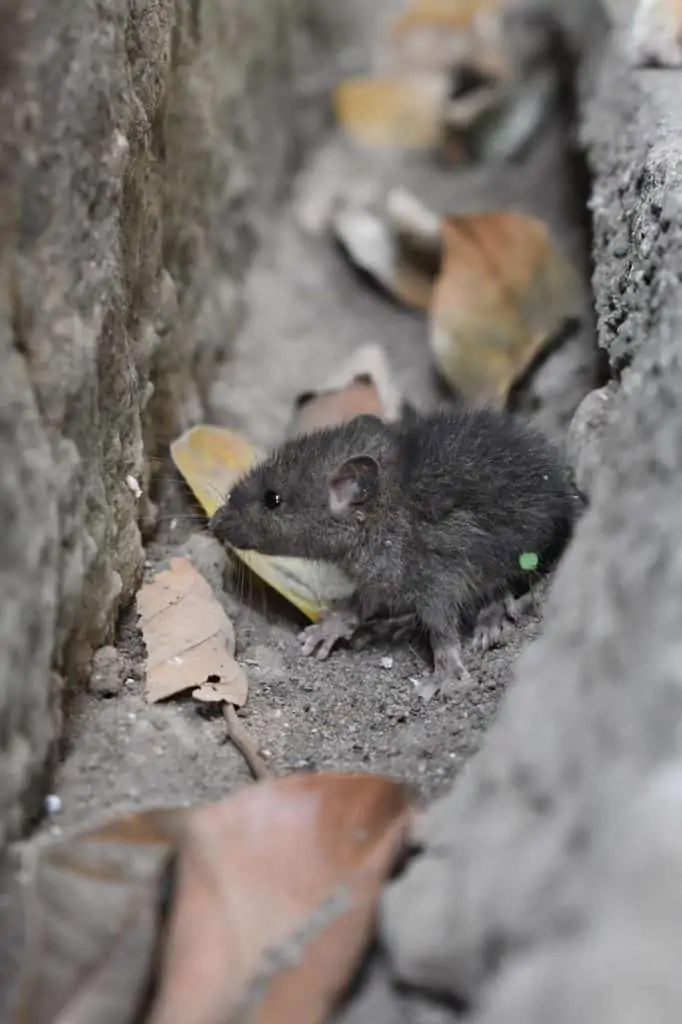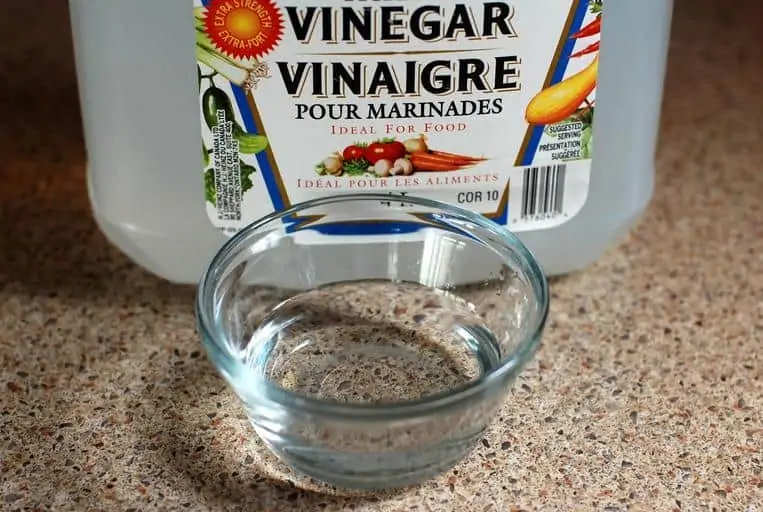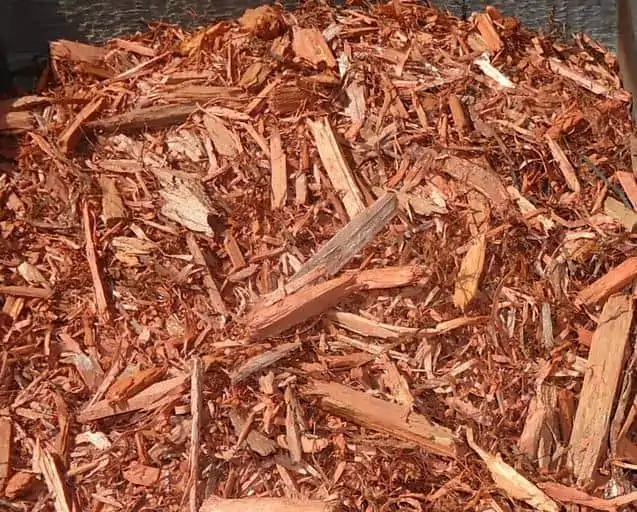Mice are notoriously difficult to get rid of. There are many different tactics that you can use to keep them away from your home, but how effective are they?
You might be wondering what scent will keep mice away, and do certain scents alone really work to keep mice away from good? These are great questions, and we are here to help you answer them.
If you want to get rid of mice in your home, there are not only many different products on the market that can be effective for repelling mice, but there are indeed different scents that will keep mice away as well.
Of course, some scents will work better than others and some simply don’t work at all. The best way to find out what scents will keep mice away most effectively is to do your research. Kepe reading to learn more.
Contents
But First, Let’s Talk About Mice
Mice are small rodents that are commonly considered pests.
There are approximately 1,000 species of mice in the subclass ‘Myomorpha’ all over the world and over 70 species of mice in the United States.
Mice are found on every continent except Antarctica. They are small mammals that can be found in a variety of habitats including forests, grasslands, deserts, and even human homes and buildings.
The most common type of mice in the United States is the house mouse (Mus musculus). This species of mouse has been introduced to most parts of the world by humans through trade, travel and agriculture. The house mouse is also known as an agricultural pest because it damages crops such as wheat and corn.
Other common species of mice include the deer mouse, the western harvest mouse, and the white footed mouse.
The Deer Mouse
Deer Mice are usually found in fields or meadows where there are plenty of hiding places such as tall grasses and weeds. Deer Mice feed on seeds and insects, which they find by running through vegetation with their long tails held upright to sense any movement below them. They’re nocturnal so they come out at night to search for food – they aren’t social animals so they don’t live in family groups like some other mice species do.
The House Mouse
As we mentioned above, the House Mouse is the most common species of mouse found in the United States and often in homes. They live in a wide range of habitats, including urban areas, farmland and woodland. They’re active at night and feed on a wide variety of food, such as seeds, cereals, fruits and vegetables.
The Western harvest Mouse
Western Harvest Mice are found all over North America from Canada down to Mexico and California – they’re also called Rock Mice because they like to live under rocks! These tiny mice have gray fur with brown sides.
The White Footed Mouse
The White Footed Mouse is a small rodent that lives in the Western part of North America. It has short ears, short legs, and a long tail, which is useful for balancing when it’s running through its rocky territory. The White Footed Mouse has gray fur on its back, with white underparts and feet.
Although many mice are beneficial to a healthy ecosystem, some mice can cause considerable damage to property and food supplies, as well as pose a health hazard. Furthermore, mice are prolific breeders and have the ability to produce large numbers of offspring in a short period of time.
The average mouse lives for around 24 months, but they can live up to 12 months in the right conditions. The lifespan of wild mice is much shorter than that of domestic mice because they face a greater risk of predation.
Mice start breeding as soon as they reach sexual maturity at around four to seven weeks old. They have an average litter size of ten, but this can vary depending on the type of rodent involved and their living conditions.
But how do mice get into your home? This is an important question to answer when you’re looking for what scent will keep mice away for good.
Mice usually enter homes looking for food, shelter, and a place to nest. They can squeeze through tiny cracks and holes as small as a dime. They can even squeeze through the tiniest spaces in floorboards and walls, so it is important to seal up any openings that may be allowing them in.
These small rodents can also enter homes through small openings around windows, doors, and garage doors. Because they can get into your home through even the smallest of openings, it’s important to find out where they are coming into your house so you can repair the damage quickly.
It’s also important to look for signs of a rodent problem in your home so you can know how to get rid of them. While knowing what scent will keep mice away is helpful, if you already have a large rodent infestation you will likely need to use other methods of removal to control mice as well.
To determine if you have a mice problem, look for these signs:
Droppings – Mice droppings are typically 3/8 inch long and pointed at both ends. They may be dark or light brown depending on what the mouse has been eating. Droppings are usually found in clumps along baseboards and behind appliances such as stoves or refrigerators where food is stored or prepared.
Bare patches – Mice can cause bald patches on flooring by chewing on wood to get at insects underneath. These bare patches will appear as small holes with frayed edges around them. This is usually seen near walls where there is little traffic from people walking past and scuffing their shoes against the ground.
Runways – Mice use runways to travel from their nest to a food source. These paths are visible along walls, where there is no furniture or other objects that could serve as obstacles to their travels. They also may be seen along baseboards if the mouse has moved into wall voids in your home.
Nesting materials – Mice will make nests out of fabric, paper and other small material. They can be found in the attic, walls and floorboards.
Gnaw marks – Look for holes in boxes and packages to see if mice have been eating through them. Mice also gnaw on electrical wires that run through the wall, so they may leave a hole behind.
What Scent Will Keep Mice Away?
There are several scents that can help keep mice away.
Many people have tried various methods to keep mice out of their homes, and many have found that specific scents can be quite helpful when it comes to repelling mice naturally. Knowing what scent will keep mice away from your home can also be beneficial if you are interested in doing it yourself methods of pest control.
Luckily, there are several scents that can be used to deter mice from entering your house, including:
- Peppermint
- Dryer Sheets
- Cloves
- Ammonia
- Vinegar
- Cinnamon
- Mothballs
- Eucalyptus Oil
- Cedarwood Oil
- Cayenne Pepper
The first step in using the above scents to keep mice out is to find an area where they live or travel through regularly. This could be under the floorboards or in the attic. Once you know where they are going, then you can use these scents to repel them or keep them from entering your home.
Of course, knowing what scents will keep mice away can be helpful in getting rid of mice, but if you have a serious mouse infestation or problem then it will be important to use other methods for rodent removal along with the above scents for best results.
We will talk more about these methods a bit further down, but for now let’s take a closer look at what scent will keep mice away.
1. Peppermint
Peppermint is an herb that can help keep mice away.
Peppermint is a very strong-smelling herb, and because of this, it can be used to repel many pests. Mice are particularly sensitive to the smell of peppermint and will avoid areas where the plant is growing or where peppermint oil has been sprayed or applied.
Peppermint oil sprays can be made using an empty spray bottle or small mister. Fill the bottle halfway with water and then add five drops of peppermint essential oil. Shake well before use. Spray liberally around your home and around entrances, windows and doors. You can also place cotton balls soaked in peppermint oil in areas where you think mice might enter your home (such as under sinks). Leave these in place for several days to prevent future infestations.
Companion planting using peppermint is a technique used by farmers and gardeners alike who want to attract beneficial insects while deterring pests from entering their garden space. In this case, you can use peppermint plants as a way to keep mice from your yard or home.
Peppermint is a common scent that is used to repel mice and other pests. Mice are known to avoid the smell of peppermint, so by placing this herb in your home, you can keep mice away. However, it’s important to note that peppermint won’t do anything alone. You’ll need other methods of keeping mice out of your house as well.
Mice aren’t the only pests that peppermint can repel. Rats, squirrels and rats all dislike the smell of peppermint and will stay away from it. Peppermint can also repel spiders, roaches, ants, and flies.
2. Dryer Sheets
Dryer sheets can help keep your clothes smelling fresh, but they can also help repel mice.
When it comes to what scent will keep mice away, dryer sheets are your answer.
Dryer sheets are made out of a special material that is infused with scents to help reduce static cling. These scents are what give your clothing its fresh scent after you dry it in the dryer. Mice have an extremely sensitive sense of smell, so they can smell these scents from a long distance away. The strong scent from dryer sheets will keep them away from your home and belongings.
You use dryer sheets for what scent will keep mice away, simply place a few sheets behind appliances or furniture where mice hide during the day or when they are looking for food. This will create an unpleasant odor that will keep them away from these areas and prevent them from coming inside your home looking for food or shelter during those times when they are most active (which is usually at night).
You can also place a sheet near entrances like doors and windows so that when mice try entering your home they will notice the strong scent right away and quickly look for another place to roam.
Along with repelling mice, dryer sheets can also help keep bed bugs, ants, and roaches at bay.
3. Cloves
Cloves have a strong scent that keeps many pests away.
Cloves are a spice that comes from the dried flower buds of a tree in the family Myrtaceae. The tree is native to Indonesia and is closely related to nutmeg and mace.
Cloves have been used for thousands of years as a spice and medicine in many different cultures around the world. Along with being an effective scent on our list of what scent will keep mice away, cloves have also been used as an insect repellent throughout history. In fact, they may have even been used as far back as ancient Egypt or Babylon!
Cloves work as a natural rodent repellent because they contain eugenol, which is a chemical that’s found in other scents like cinnamon and nutmeg. Eugenol has been shown to repel mice, rats and cockroaches because it mimics their alarm pheromones.
There are two ways you can use cloves in order to get rid of mice. First, you can use it by sprinkling it around your home or business. You can also keep mice and other pests away by making a clove oil spray. Both methods will help repel mice from your property without harming them or your family or pets.
You can also use clove oil to get rid of mice. Clove is an essential oil that comes from the cloves plant. When you use clove oil to repel mice, it may take up to two weeks before you begin to see results. Mice tend to avoid scents that they perceive as dangerous or unpleasant, so using clove oil as a repellent for mice may be effective if you combine it with other methods of getting rid of these pests such as traps and exclusion techniques.
4. Ammonia
Ammonia can help repel mice using its strong odor.
Ammonia is a colorless gas that is also known as hydroxide of nitrogen. It has a strong, pungent odor. Ammonia is widely used in household cleaners and other products that are designed to remove dirt, grease and stains. Some people use ammonia in their cleaning routines, but it can be dangerous if it is not handled properly.
Ammonia is also on our list of what scent will keep mice away. However, while it is effective, it should be used with caution.
Ammonia has an unpleasant smell that many animals find offensive. It can work as an effective repellent against mice, rats and other rodents because they do not like the way it smells or tastes. You can use ammonia around your home to keep these pests away from areas where they might cause damage or contaminate food supplies by contaminating them with their droppings or urine.
If you want to use Ammonia to get rid of mice, the best way to go about this is to use it in a spray form. You can either buy some commercially made repellent spray containing ammonia or make your own. To make your own, combine one part ammonia with three parts water. The more concentrated version may be more effective at repelling mice than the diluted version, but it’s also more dangerous for humans and pets.
Ammonia doesn’t just repel rodents; it also works on cockroaches and spiders as well! It can also work on ants and fleas if you use it as a spray on the outside of your home.
5. Vinegar
Vinegar can be used as a natural form of a home cleaning solution that repels mice, ants, roaches, and more.
Vinegar is a great natural remedy for many uses and it also works as what scent will keep mice away.
Mice have a highly developed sense of smell that they use to navigate their way around the world. They are attracted to odors like food, urine and sweat because they contain nutrients that they need for survival and reproduction. This means that if you want to keep mice away from your home, you need to mask their favorite smells with a stronger scent that they are less likely to like!
You can make a vinegar spray by combining equal parts vinegar and water in a spray bottle and spraying it around your home. This is a safe way to mask smells that might attract mice.
Vinegar has been known for centuries as an effective way to repel pests such as cockroaches, ants, and fleas.
6. Cinnamon
Cinnamon smells good to humans but it is highly repulsive to rodents.
Cinnamon is also supposed to have pest repelling properties as well. If you have mice problems in your home, then this can work as what scent will keep mice away.
Cinnamon is a spice that comes from the inner bark of trees belonging to the genus Cinnamomum, which contains high levels of coumarin. Coumarin is an aromatic organic compound that gives cinnamon its distinctive flavor and fragrance.
It works to keep mice away because mice are highly sensitive to smell and are easily put off by strong odors. To use this method to keep mice away, you can sprinkle dry cinnamon along window sills and doorways, or below kitchen sinks or cabinets where you suspect rodent activity.
7. Mothballs
Mothballs contain a chemical called naphthalene.
Mothballs are small balls of chemicals that have a strong scent. They’re often made from naphthalene, which is a chemical found in crude oil. The scent of naphthalene is what keeps moths away from your clothes and other items.
The scent of naphthalene repels mice because it is highly irritating to their sensitive noses. You can use mothballs as a rodent repellent by placing them in areas where mice might be attracted, including basements, kitchens, crawl spaces, and pantries.
Placing mothballs near areas where you can see mouse activity will also help deter them from moving through those areas again in the future. With that being said, mothballs can be toxic to children and pets, so this method should only be used with caution.
8. Eucalyptus Oil
Eucalyptus Oil can be used in oil diffusers or sprays to repel rodents.
Eucalyptus oil comes from the eucalyptus tree, which is native to Australia but now grows worldwide. Eucalyptus Oil is extracted from the leaves of the eucalyptus tree. The oil contains various compounds that give off a strong scent when burned or vaporized. Since this scent is so strong, it can be used to keep mice away from your home or office building.
You can make your own eucalyptus oil spray by mixing 10 drops of eucalyptus oil with one liter of water in a spray bottle. Shake well before use, then spray around areas where you think mice may be entering or living in your house. This will help keep them out!
Eucalyptus oil is extracted from the leaves of the eucalyptus plant and has been used as an insect repellent since ancient times. It has been proven effective not only against mice, but also against many different pests including fleas, ticks, moths and mosquitoes.
9. Cedar
Cedar oil and cedar mulch can help repel rodents and many other insects.
Cedarwood oil is extracted from the cedar tree, a coniferous tree that belongs to the cypress family. Its scientific name is Cedrus atlantica.
The cedar tree has been used since ancient times for its aromatic value and medicinal properties.
Cedarwood oil contains two active ingredients: alpha-pinene and sabinene which are known for their pest repelling properties. This has led some to believe that Cedarwood oil can help repel not only rodents but also insects such as mosquitoes and fleas.
You can use cedarwood a few different ways. You can place dry cedar chips or blocks around the outside of your home to repel mice and keep them from getting in. You can also use a cedarwood oil spray around both the outside and inside of your home.
10. Cayenne Pepper
Cayenne pepper contains capsaicin, which is repulsive to a number of pesky critters.
Cayenne pepper is a spice that comes from the chili pepper plant. It has a very pungent taste and can be used in many recipes to add flavor to food. What sets cayenne pepper apart from other spices is that it contains a compound called capsaicin.
The capsaicin contained in cayenne pepper is what gives it its spicy taste and heat. When mammals encounter capsaicin, it can cause skin irritation and even damage to the mucous membranes. Mice are no exception to this rule; they will avoid areas where they smell capsaicin because they know it will burn their sensitive noses.
The best way to use cayenne pepper is by adding it directly into your home’s garbage disposal unit or garbage can to repel rodents. This way, any food waste will be mixed with the cayenne after it passes through the disposal unit or garbage can. The mice won’t be able to tell where the smell is coming from so they’ll just stay away.
Are Mice Dangerous? What You Should Know About Rodents
Mice are not aggressive but they can be dangerous.
Most of the time when mice enter your home, they are looking for food sources and shelter, as we mentioned above. Mice are small rodents that are common in homes. They can be found near food sources, such as kitchens and pantries. Mice can also be found in bathrooms and basements, where they like to hide from predators.
Though they’re not considered aggressive, mice can transmit diseases through bites and scratches, as well as through feces and urine. They can also cause damage to property by chewing on wires and other objects.
Many of the diseases mice are known to carry can be transmitted to humans and pets. The most common diseases spread by mice include:
- Hantavirus
- Lymphocytic Choriomeningitis (LCMV)
- Salmonella
- And Tularemia
Along with carrying and spreading potential disease, mice can also:
- Chew through electrical wiring
- Cause damage to car engines
- And cause destructive damage to homes
What Scent Will Keep Mice Away? Let’s Sum It Up
Mice can be repelled using several methods and scents.
There are several scents you can use to help keep mice away, as we now know from our above list. You can even use your knowledge of what scent will keep mice away above to make your own homemade recipes for rodent repellent.
Best of all, many of the scents on our list of what scent will keep mice away will also work for other pests including roaches, earwigs, spiders, ants, and flies.
Many of the scents that keep mice away are safe for people and pets, which is great if you have children or dogs and cats in the home.
With that being said, knowing what scent will keep mice away is not always a 100% effective method of rodent control. Remember, mice can be a big problem in the home. They can carry diseases and are known to carry over 40 types of parasites. It is important that you keep up with routine home maintenance and other forms of pest control to ensure you not only repel mice, but keep them from coming back.
Some of the best ways to do this include following the below tips.
Keep up with routine home maintenance. Mice are attracted to the warmth and shelter of attics, basements and crawl spaces. Make sure your home has no cracks or holes that could allow mice in. Don’t leave trash bags sitting outside for long periods of time either; this is an invitation for mice to find a new home.
Keep your yard well manicured. Mice love long grasses, shrubs and trees and will often use these areas as cover when they want to come inside. By keeping these areas trimmed back and free of debris, you can discourage mice from using them as entry points into your home.
Use a form of year-round pest control. There are many options available for controlling pests such as mice without having to resort to more extreme measures such as poison or traps (which can be dangerous for children and pets).
If you find that you’re not able to control rodents using your knowledge of what scent keeps mice away along with the other products and methods on our list, it’s best to call in a professional pest control expert.
Best of luck and thanks for reading!
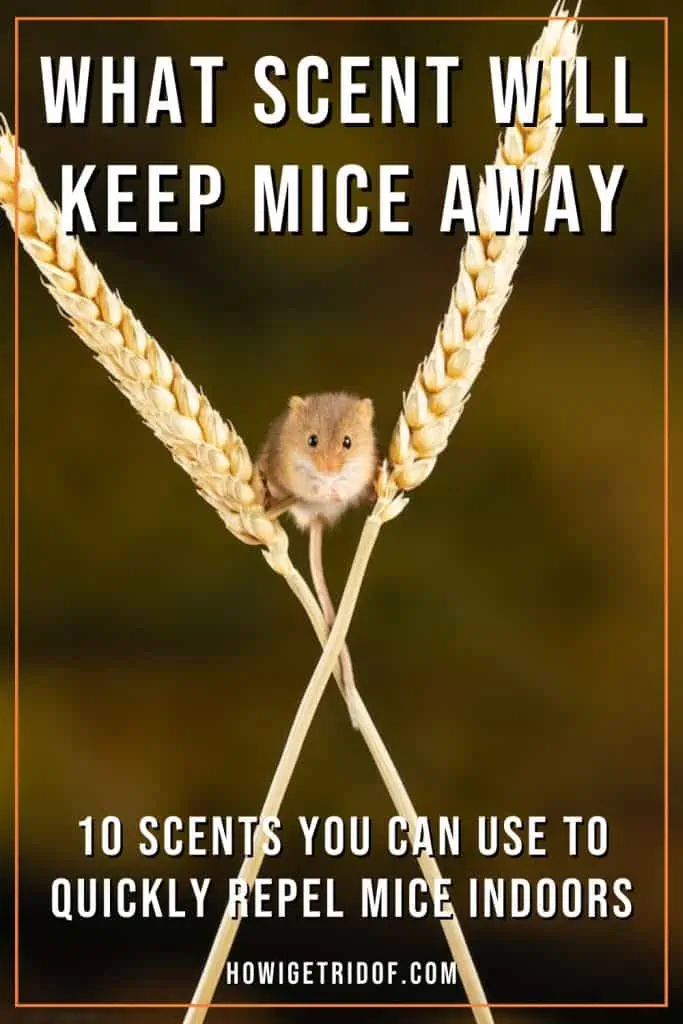

Jack founded our blog after two decades of working in the pest control industry. His vast experience dealing with a wide array of pests allows him to diagnose issues quickly and get to the heart of pest problems quickly and effectively. He has serviced more than 2,000 homes over his career and there is hardly any pest situation that he has not seen before.
